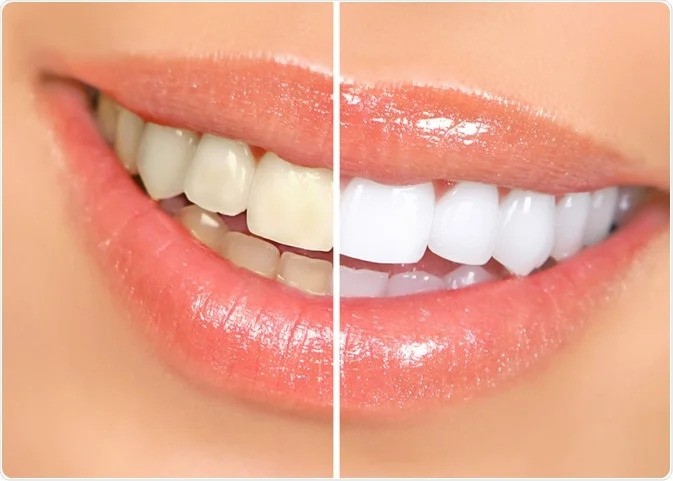6 Facts About Teeth Whitening You Should Know

A radiant white smile is frequently connected to youth, confidence, and well-being. Because of this, teeth whitening has emerged as the most widely used cosmetic dental procedure, making up 32% of procedures carried out in offices.
Even though many people might be interested in teeth whitening, there is some crucial information to know before getting started. There are many important factors to consider, such as knowing who is a good candidate for teeth whitening, the treatment’s limitations, and how crucial it is to work with a trained professional.
- Teeth Whitening Isn’t For Everyone
Although teeth whitening is a cosmetic dentistry procedure that can enhance stained or discolored teeth, only some are good candidates for it. For instance, individuals with intrinsic strains might need veneer therapy because medication- or trauma-related discolorations cannot be altered by bleaching agents.
Teeth whitening procedures should also be avoided by people with sensitive teeth, worn enamel, or exposed roots since they may exacerbate existing conditions.
You must see a dentist to assess your oral health and decide whether teeth whitening is a suitable and safe course of action for you.
- Sensitivity After Teeth Whitening is Normal
Sensitivity following teeth-whitening procedures is common. The reason for the sensitivity is that the whitening agents based on peroxide pierce the enamel to bleach the dentin layer beneath, which is made up of nerve endings. Temporary sensitivity to hot, cold, or sugary foods and beverages may result from this.
But after a few days, the sensitivity usually goes away. To lessen discomfort, patients can use desensitizing toothpaste or gel and stay away from hot, cold, or acidic foods and beverages.
- The delivery method is critical to optimal teeth whitening results.
The majority of whitening products contain roughly the same active ingredients; however, the delivery method is the primary distinction between a good and bad teeth-whitening treatment.
As an illustration, a lot of over-the-counter whitening products cover the teeth with a tray that fits everyone. This is the container in which the whitening gel is kept. The fact that every tooth is unique is the issue. Customers will consequently frequently experience uneven or ineffective whitening.
On the other hand, you have a better chance of achieving a more uniform whitening result if you have a tray that is specially made to fit your teeth (like the ones included in professional whitening kits).
- The cost of custom-fitted trays and kits is significantly higher.
This makes perfect sense and is true. I’d like to ask you this. What other kind of teeth-whitening procedure is customized to fit your mouth and improve the appearance of your smile? Making thousands of one-size-fits-all trays is simple; however, creating custom teeth whitening trays for each customer requires more effort and complexity.
- Sensitivity after teeth whitening is normal
You’ve undoubtedly heard tales of friends who had teeth whitening procedures done, only to discover afterward that they hurt excruciatingly! The issue is that a large number of people (roughly 60% of the population as of the most recent count) have sensitive teeth. Genetics, broken or damaged teeth, or thinning enamel can all contribute to this. However, many are unaware of it at the moment. They then proceed to whiten their teeth by purchasing the newest and greatest over-the-counter product. And suddenly, it hurts!
On the other hand, your dentist or hygienist will always examine you before recommending professional teeth whitening.
Their experience will enable them to determine whether you will react negatively to teeth whitening procedures, and they might even advise treating the issue before starting any treatment. In this manner, the eventual experience of getting your teeth professionally whitened will be comfortable.
- Expert teeth whitening is never permanent.
Tooth whitening cannot be achieved permanently with a single whitening procedure! As we’ve already discussed, teeth are porous and can therefore absorb stains from smoking, colored foods, and beverages. Any kind of teeth-whitening procedure is only ever temporary, unless you survive solely on water and probably lettuce. Naturally, the foods you eat will affect how long it lasts, but generally speaking, you should schedule another whitening procedure every six months to two years.
Consult your dentist about teeth whitening.
As always, we advise consulting your dentist before beginning any teeth-whitening procedures. Your dentist can tell you whether the procedure is worth it based on the particular state (and color) of your teeth.
Call us at +91-8054011255 if you need more information or if you have any questions.
